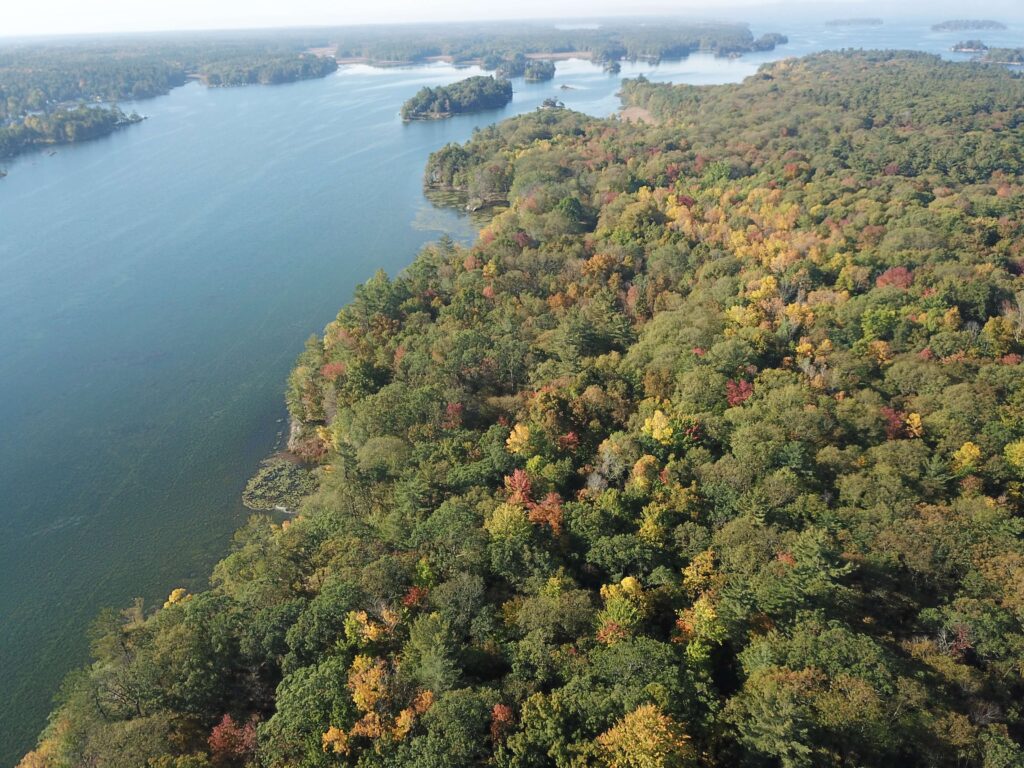Conserving land in the Thousand Islands begins with landowners who are passionate about preserving the region’s natural beauty, wildlife habitats, water quality, and recreational opportunities. TILT offers a range of conservation options to align with the goals of individual landowners. If you have any questions, please don’t hesitate to contact the TILT office at 315-686-5345.
Conserve Your Land While Keeping Ownership
Landowners can conserve their land while maintaining ownership through a Conservation Easement. A conservation easement is a legal agreement between a landowner and a land trust, like TILT, that limits certain activities to protect the land’s conservation values.
Landowners retain ownership and can still sell or pass the land on to heirs, with the easement ensuring the land is conserved forever. Easements can be customized to allow limited development, tree cutting for firewood, or hunting, as long as they align with conservation goals. TILT works closely with each landowner to tailor the easement to their wishes.


Conserve Your Land by Donating it to the Land Trust
Donating your land to TILT transfers full ownership to the Land Trust, ensuring its protection in perpetuity. Donations can offer tax benefits and create a lasting conservation legacy. TILT may hold the land or resell it with a Conservation Easement to continue protecting it. Landowners can also discuss the possibility of TILT selling the land in the future to fund other conservation projects, in line with their wishes.
Conserve Your Land Before Selling It
If you’re selling your property but want to prevent over-development, you can place a Conservation Easement on it before the sale. This ensures protection of the land for future generations, no matter who the new owner is.
Conserve Your Land Through a Bargain Sale
A Bargain Sale allows you to sell your property to TILT for less than its market value. The difference can be counted as a charitable donation, providing potential tax benefits. This also makes it more affordable for TILT to protect additional lands.
